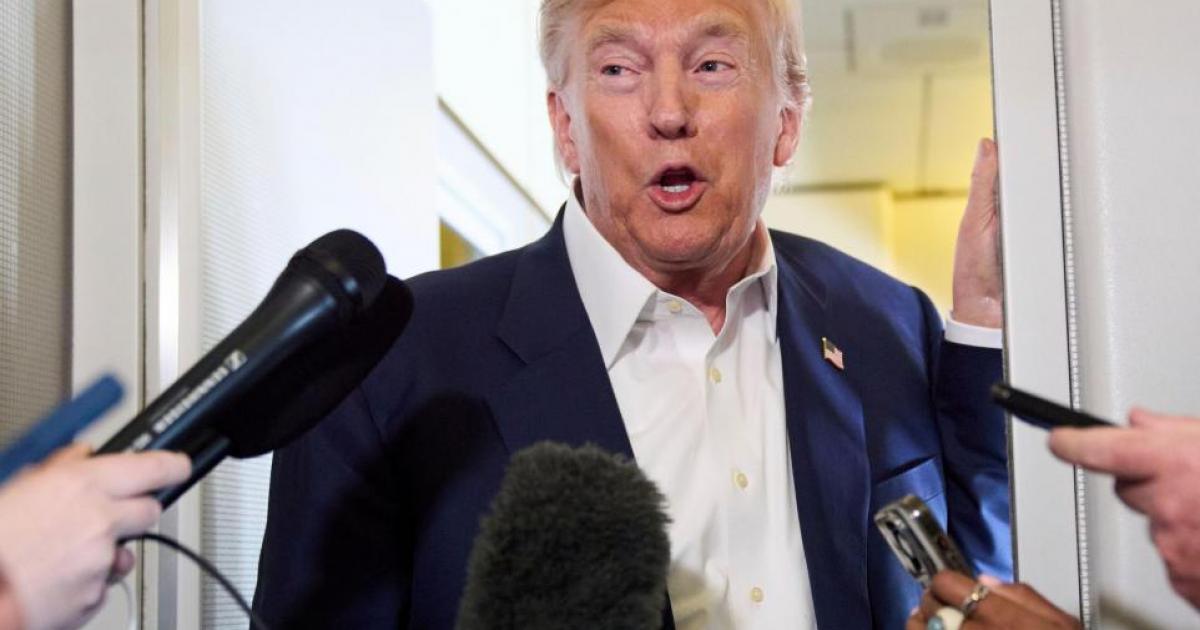The self-proclaimed master of the deal has shown that he doesn’t have the right cards to play in this game, where Mr. Putin outwits him on every occasion.
Meeting with the Russian President in Alaska was a big mistake.
Mr Trump must now regret it, as it allowed Mr Putin to stand on the international stage without fear of arrest; a fear he would face if he dared enter a country where the writ of the International Court of Justice holds.
How can President Trump live with his conscience, when he claims that he cannot endure the deaths of so many people who are the victims of President Putin’s deliberate attempt to continue this conflict until he grinds down Ukrainian resistance?
He had the audacity to tell President Zelenskyy that he had no cards to play.
Both China and Russia have the measure of the man in the White House, and are running rings round him.
If Ukraine is drained of energy by this attritional war and collapses, the blame can be well and truly laid at the door of the President of the United States.
He could also easily allow China to absorb Taiwan without lifting a finger to prevent it from happening.
Trump is nothing more than an appeaser in disguise.
Denis Bruce, Bishopbriggs.
More letters…
King Charles should dip into his fortune to help Britain’s poorest
Golf should target the spitters
Queensferry Crossing design failed its first major test with Highland Show problems
Money matters
A recent front page reported a revised SNP rebels independence motion for the party’s annual autumn conference (“SNP rebels name indy date in new bid to earn a debate at conference”, The Herald, August 23).
There is much speculation by nationalists about the mechanism of achieving a mandate for secession, but very little about what comes after.
The economic viability of a separate Scottish state has been addressed several times by the SNP without any convincing conclusions.
Even supporters of independence such as Andrew Morton, Robin McAlpine and economics professor Mark Blyth have been scathing about the lack of detail and realism in the SNP’s approach to the economy of an independent Scotland.
According to the SNP, Scotland’s revenue in the years 2024 through 2025 was £91.376 billion. Spending on public services was £117.564 billion.
So the nation’s fiscal deficit was £26.188 billion.
That is 11.8% of GDP.
With these figures, how can nationalists assert that an independent Scotland could be economically viable?
Also, from the Scottish government’s Quarterly National Accounts, our trade balance from the fourth quarter of 2023 to the third quarter of 2024 was minus £25 billion. 11.4% of GDP.
An independent country would collapse financially, and consequently socially, if that was the state of the economy.
The SNP are debating how to achieve a mandate for independence, but ignore the need to address what comes after.
James Quinn, Lanark.
Holding out for a hero
May I suggest letters correspondent Mark Openshaw read Brian Wilson’s excellent opinion piece (“No apology is needed for Scotland’s extra £2,669 a head. But don’t forget why it exists”, The Herald, August 21).
The history of the support given to Scotland, published in the latest GERS (Government Expenditure and Revenue Scotland) report, and also given to the North of England, is explained in simple and understandable terms.
The bigger issue is how to generate enough government revenue to offset the diminished returns due to deindustrialization.
The latest steelwork closures, announced at Rotherham and Sheffield, and doubts surrounding Port Talbot and Scunthorpe, will all have knock-on effects nationwide.
We import parts for wind turbines; Germany is to create a new 70 unit floating wind farm for the UK.
Most of the UK’s energy generation is not owned by any UK company. And so it goes on affecting different supply chains with most parts being imported.
Secretary of State for Energy Security and Net Zero, Ed Miliband, comes across as a zealot with no balanced thoughts about the road to net zero, other than it must be done, even at the cost of what is valued most in Britain.
Chancellor Rachel Reeves is struggling to reduce the UK’s deficit, and according to the usual pre-budget leaks, everyone is going have to find deeper pockets. Except the offshore owners of our utilities etc.
Is it too much to suggest and hope that all politicians from the respectable parties create a coalition?
A ‘coalition of the willing’, to borrow Sir Keir Starmer‘s phrase regarding the European governments allied with Ukraine.
The same commitment is needed here and now.
If Britain fails, might it be colonised by the ambitious new empire builders now declaring their intent?
I mean Russia and China; just look at the latter’s huge embassy building, being built in London. Why so large and secretive?
Mr. Openshaw and others should look beyond the here and now and study developing trends.
The weakening of the West is intentional, with a long term strategy being played out.
It started years ago. The industry where I was employed suffered through the supply of ultra cheap parts that UK suppliers could not compete with.
There are many examples, including the steelwork used on the Queensferry Crossing, which apparently was supplied by China.
Is it already too late? Are we losing our pride and ability to be a strong United Kingdom?
Where is the leader who will put the ‘Great’ back in Britain?
And I don’t mean Mr. Farage!
Ian Gray, Croftamie.
Searching for sunlight
A good article by Andy Maciver on dumping the Barnett formula, (“Yes or No, we all secretly love the block grant. But it’s time to rip off the plaster”, The Herald, August 22) but he does not indicate what he would replace it with.
The predecessor to Barnett was the 1888 Goschen formula, which allocated Scotland 13.75 of the England / Wales amount, when Scotland was both wealthier and had a relatively bigger population share. Would Northern Ireland lose its share of funding? How about London?
I favour full fiscal autonomy (FFA) for Scotland, as I believe it would inevitably lead to independence (in an interdependent world).
Without the Treasury opening its books, we simply have to guess at the real fiscal situation in Scotland, but FFA would allow any Scottish government the ability to scrutinise where money is actually spent.
Why would Scotland support a situation where we only get half of the money we “send” for defence spent here.
Or where industrial lame ducks are supported by the British state in England, but not in Scotland or Wales?
Or where strategic grant allocations for industry (car production, renewables and carbon capture and storage) are heavily biased toward England?
British energy with a nameplate in Scotland but actually run from Manchester.
There may be arguments on both sides, but an open book is better than the current situation, sunlight (public scrutiny) being the best disinfectant.
GR Weir, Ochiltree.
Fact-finding foolhardy
It seems that the SNP has, over the last five years, spent almost £24 million of our money on opinion polling.
This does not include the cost of polling by quangos.
The results confirm the truth of the saying ‘eavesdroppers never hear any good of themselves’.
For, while the SNP won 48 per cent of the vote in the 2021 election, polls show that it receives around 33 per cent today.
Perhaps poll-weariness has set in.
Who are the people who are consulted by these pollsters?
Since neither I, nor anyone I know, has been consulted by any of them, I am not disposed to take them at all seriously.
£24 million is the sort of sum that could have made a difference to rundown services, including refurbishing the eighteen fire stations in Scotland that have no running water supply.
Jill Stephenson, Edinburgh.
Chancellor Rachel Reeves has her followers, but many question Labour’s financial acumen (Image: Jane Barlow/PA Wire)
Cash crash
We were told that Labour inherited a deficit of £22 billion.
To rectify this, they increased taxes by £40 billion, thus providing them with a surplus of £18 billion.
There now appears to be a need to further increase taxes by up to £50 billion.
In simple arithmetic, this means they have generated during their first year in office a deficit of up to £68 billion. More than three times the deficit inherited from the Conservatives.
It took the Conservatives 14 years to achieve their deficit.
Where on earth will we be after a further 4 years of Labour?
Gilbert Andrew, Ayr.


